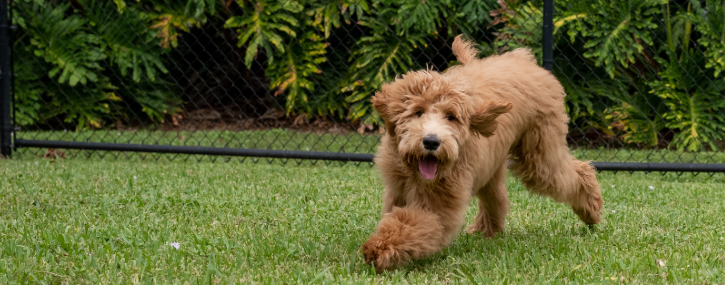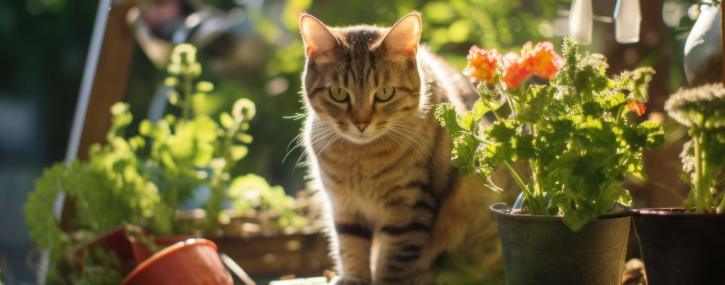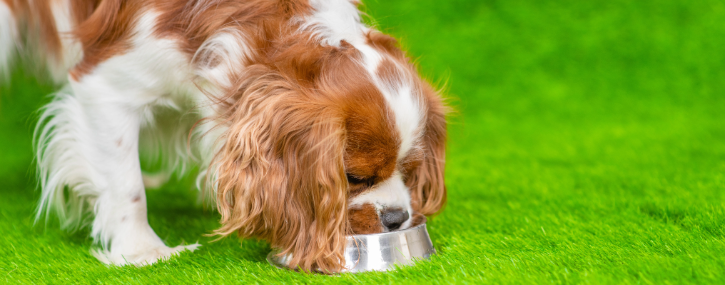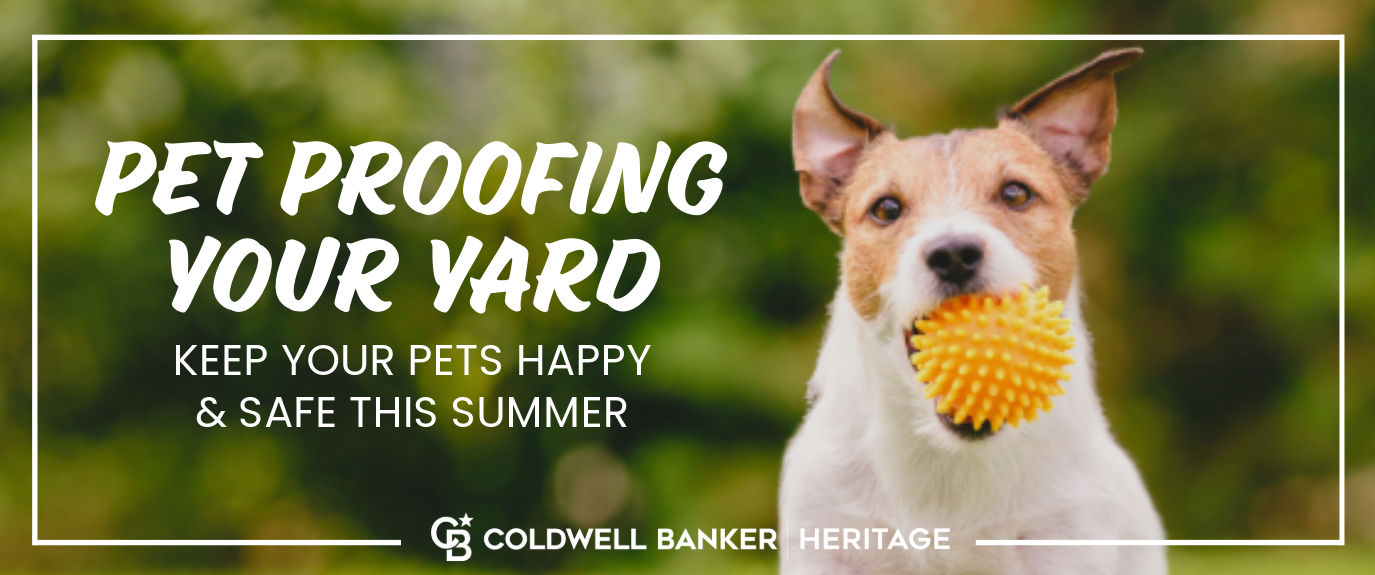As the weather warms up, our furry friends will want to spend more time lounging outside. To ensure their safety and happiness, it’s essential to pet-proof your yard. Here are some tips to keep your four-legged companions safe this summer:

Install a Secure Fence
A sturdy fence is crucial for your backyard to keep unwanted animals out and your pets in. Inspect your fence regularly for holes where small dogs might slip through and ensure it’s tall enough to prevent large dogs from jumping over. Additionally, consider a secondary fence around swimming pools. Even strong swimmers should never be left unattended around water, so teach your pets how to safely enter and exit the pool.

Choose Pet-Safe Plants
Some plants in your yard might pose a threat to your pets. Before gardening, research and avoid planting toxic varieties. Here are a few examples of common plants that could be poisonous:
- Mums
- Hostas
- Boston and English Ivy
- Hydrangeas
- Oak Trees (leaves and acorns)
- Tulips
- Azaleas
- Lilies
- Aloe Vera
In addition, avoid plants with thorns or spines that could injure your pets. For a complete list of toxic plants, refer to the ASPCA’s Toxic and Non-Toxic Plant List.
Secure Trash Cans & Fire Pits
Pets are naturally curious — and trash can be hazardous. Always use trash cans with secure, tight-fitting lids to prevent pets from ingesting dangerous items. Securing trash cans also helps deter wildlife from rummaging through them.
Regularly check your yard for stray trash, broken glass, or other dangerous objects. If you have a fire pit, never leave your dog unattended near an active fire or a recently extinguished one, as embers can remain hot for hours.
Maintain Your Lawn
Tall, unkempt grass can harbor ticks, while fleas thrive in dark, humid places like outdoor dog houses, decks, and sheds.
To protect your pets:
- Mow the lawn regularly
- Clear brush, weeds, and yard debris
- Sweep patios and clean under decks frequently
- If treating your yard with pesticides, always choose pet-safe products and consult your veterinarian first

Provide Water and Shelter
Pets need plenty of water and shade when spending time outdoors in warm weather.
Dehydration and heat-related illnesses can be life-threatening. Always provide a shaded spot where pets can rest, and keep clean water available at all times. Limit outdoor time during peak heat hours (typically mid-afternoon).
By taking these steps, you can create a safe and enjoyable outdoor environment for your pets this summer. If you have any questions or need more tips, reach out to a Coldwell Banker Heritage agent for assistance.

 Facebook
Facebook
 X
X
 Pinterest
Pinterest
 Copy Link
Copy Link

